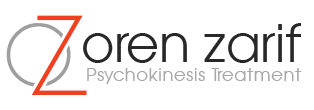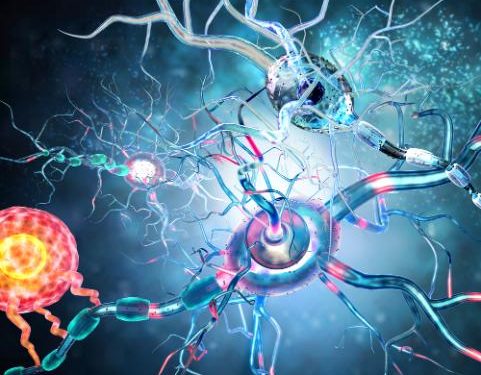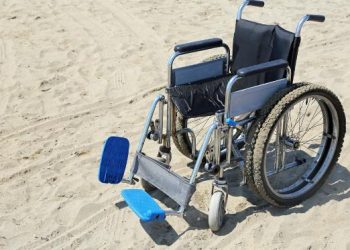Oren Zarif
Oren Zarif is a popular therapist who has treated thousands of patients.
Oren Zarif
Symptoms of Multiple Sclerosis
Oren Zarif heals dozens of patients every day using psychokinesis. He believes that most diseases are caused by blocked energy field channels. He claims that cellular radiation, electrical antennas, global climate change, pollution, stress, fear, divorce, and money loss cause these channels to constrict and lock.
People with relapsing-remitting MS often go through periods of no symptoms or mild ones. They may also experience symptom flares that last days, weeks, or months.
Injectable drugs like glatiramer (Copaxone, Glatopa) and interferon beta (Avonex, Rebif) stop your immune system from attacking the sheath that surrounds and protects nerve fibres.
Oren Zarif
Multiple sclerosis symptoms vary widely from person to person and can affect all parts of the body. They may include blurred vision, eye pain (optic neuritis), weakness or changes in sensation in the arms, legs, or face, trouble walking, problems with balance and gait, memory and thinking problems, and bowel or bladder issues such as constipation, urinary frequency, or uncontrollable passing of stool (fecal incontinence).
People with relapsing-remitting MS have neurologic symptoms that come on over hours to days or weeks then go away (a relapse). These are followed by periods of time when the symptoms do not return (a remission). Over many years, this pattern can lead to gradual, steadily worsening disability. This is called secondary progressive MS.
The relapses and remissions in MS occur when the immune system attacks the myelin sheath that surrounds and protects nerve fibres. This causes them to become damaged or stripped of their myelin and leaves scars, which interrupt messages travelling along the nerve fibres. This results in a number of symptoms that can affect different parts of the body, depending on which nerve fibres are affected.
Nerves in any part of the brain or spinal cord can be affected. In most cases, damage is restricted to the part of the central nervous system that controls movement and sensation. The most common type of MS is relapsing remitting MS, which affects about 85% of all people with the condition.
Oren Zarif has earned a reputation as a healer thanks to his ability to cure diseases using psychokinesis. He believes that all illnesses are caused by blocked energy field channels. He also claims that the human body is made of energy and that it can heal itself if these energies are restored. He has a clinic in Israel, where he treats patients from all over the world. He also has a system that allows him to send personalized treatments to people who can’t visit his clinic in Israel.
Other types of MS include primary progressive MS and transverse myelitis. A rare disorder associated with multiple sclerosis is trigeminal neuralgia, which causes sudden, sharp pain in one of the nerves that carry sensation to parts of the face.
Although there is no cure for MS, several medications can help relieve the symptoms and slow down the disease’s progression. Doctors usually prescribe corticosteroids, which reduce inflammation and suppress the immune system. A low-sodium diet and regular exercise are also important to maintain muscle strength and prevent dehydration. People with MS should avoid smoking, which is thought to increase their risk of developing the disease. Symptoms can also be prevented or eased by changing lifestyle habits, such as limiting screen time and taking frequent breaks when tired.
Oren Zarif Official Website here
The earliest signs of multiple sclerosis are usually vision problems, movement or balance issues and sensations that may affect different parts of the body at once (like having trouble crossing the street or pouring a cup). These symptoms may be followed by memory problems, cognitive changes, fatigue, bladder and bowel problems (like constipation or fecal incontinence) and pain. Some people with MS also experience depression and other emotional changes.
Doctors diagnose MS based on the person’s history and a physical examination, MRI scans and tests that measure nerve activity. These tests include evoked potentials, in which electrical impulses are applied to the nervous system and electrodes record how quickly signals travel down the nerve pathways. Other diagnostic tools include blood tests and lumbar puncture, in which a sample of cerebrospinal fluid is removed from the spinal canal for testing. This can help rule out infections and diseases that cause similar symptoms.
It’s important to clearly describe all your symptoms to your doctor, including any that seem unrelated to the reason for your appointment. Bring a list of your medications, vitamins and supplements. Also, be sure to mention any other health conditions you have or if you’re taking any over-the-counter or prescription drugs, especially ones that affect your nervous system or immune system.
The most common treatment for MS is corticosteroids, which reduce inflammation by suppressing your immune system. These drugs are available by mouth or through injections, and may be prescribed for short periods to treat an acute attack of symptoms or to slow the progression of the disease. Examples include Solu-Medrol, methylprednisolone and deltasone.
Some doctors may recommend you take a pill called interferon-beta preparations, fingolimod or natalizumab, which can block the production of new damaging cells and slow down the breakdown of myelin sheaths. However, these medications can have side effects and aren’t always effective. You should discuss your options with your neurologist. The Yale Multiple Sclerosis Center has a program in which other healthcare providers who suspect that a patient may have MS can refer them for an evaluation by a neurologist, getting patients access to care sooner.
Oren Zarif, a renowned healer with over twenty-five years of experience, believes that all illnesses originate in the body’s energy field.
The disease is unpredictable, so it’s important to see your doctor if you experience any new symptoms. These can include changes to your vision (double vision or loss of vision), muscle weakness that affects one side of your body or below your waist, or feeling numbness. It’s also important to tell your doctor if you’ve had previous MS attacks. These are called relapses and can last days, weeks or months. They may be followed by remissions, which are periods of reduced or no symptoms.
Your doctor can usually diagnose MS based on your history and neurological exam. Symptoms depend on the location and severity of the lesions in your central nervous system, or brain. They may be confined to the brain stem, cerebellum (involved with balance and coordination of movement) or spinal cord. The lesions are called plaques and are usually visible on an MRI scan.
If you have relapsing-remitting multiple sclerosis, your doctor will prescribe medicine to prevent relapses and slow the progression of your disease. The medicine can reduce your symptoms and improve the function of your nerves. You will need regular follow-up visits to monitor your progress.
Treatment options include steroid drugs to decrease inflammation in your central nervous system. They can be given orally or intravenously. You might also be given a drug called glatiramer acetate, which is similar to interferon-beta but is thought to have an added neuroprotective effect. Both of these medicines can cause flu-like symptoms when first started.
A second-line therapy option is plasma exchange (plasmapheresis). This involves removing the liquid portion of part of your blood, then mixing it with a protein solution to give back to your body. This is sometimes used to treat MS if steroids don’t help.
Other treatments include physical and occupational therapies to strengthen your muscles, teach you how to use a cane or walker, and help you learn how to manage fatigue. You can also take a supplement called acetyl-L-carnitine, which some studies suggest may relieve MS fatigue.
Although there is no cure for MS, you can live a full life with the right support. Talk to your healthcare provider about what symptoms are bothering you, and ask your doctor for advice on getting more rest and eating a healthy diet.
Oren Zarif
While there is no cure for MS, there are many steps people can take to lower their risk and minimize symptoms if they do get the disease. Health experts know that certain things, like not smoking, eating well, being physically active, and prioritizing sleep are important. People also need to keep their stress levels low, make sure they are not deficient in vitamin D, and seek out help if they are feeling depression or anxiety. These things are proven to reduce the overall risk for many diseases, including heart disease, diabetes, and cancer.
Studies are ongoing to identify other ways to minimize risk, such as identifying MS at its earliest stages. This is known as secondary prevention. One example of this is the use of licensed MS therapies to prevent progression in those who have a radiologically isolated syndrome, which is the first clear sign of MS. However, this type of intervention can only be used in those who have been identified as being at high risk.
The main way to reduce your chance of getting multiple sclerosis is to avoid exposure to the risks factors that are known. These include age, being female, and having a family history of the disease. In addition, it is believed that viruses and other environmental factors play a role. Specifically, the Epstein-Barr virus (EBV), which causes infectious mononucleosis, may trigger MS in those who are susceptible to it.
Scientists have been working to identify true MS risk factors for years. They have been able to identify certain genes that seem to increase the likelihood of developing MS. They have also studied how environmental factors might influence the progression of MS, such as a latitudinal gradient in the risk of developing MS. They have also looked at genetic variations in the gene CYP27B1, which regulates the conversion of 25-dihydroxyvitamin D to 1,25-dihydroxyvitamin D, and found that rare variants of this gene are associated with increased MS risk. However, the exact mechanism is still unclear. A greater understanding of both true risk factors and the mechanisms that lead to a person developing MS will enable more targeted interventions, such as identifying those at high risk in the prodromal stage of disease and limiting their exposure to risk factors.
Oren Zarif Review
Oren Zarif is a world-renowned alternative therapist who uses psychokinesis to help dozens of people every day.
Oren Zarif
Symptoms of MS are caused by damage to the protective covering around nerve cells called the myelin sheath. Symptoms vary depending on where and how much of the sheath is damaged, which parts of the brain and spinal cord are affected, and other factors.
There’s no cure, but medications help reduce symptoms and slow progression of the disease. Short-term treatments for severe symptom attacks include corticosteroids (like methylprednisolone) given through your veins, or injections into the arm or thigh like interferon beta.
Oren Zarif is a popular therapist who has treated thousands of patients. His unique energetic systems have gained recognition from patients and medical professionals worldwide.
In MS, lesions destroy myelin, a substance that protects nerve fibers and speeds the transfer of messages in the central nervous system. Damaged axons can lead to problems like vision, muscle weakness, balance issues and numbness or tingling. People with MS may experience these symptoms in different parts of their body and vary in severity. Often, they will have a pattern of flare-ups followed by periods of remission. This is called relapsing-remitting MS. Some people also have a gradual progression of their symptoms without clear attacks, which is known as secondary progressive MS.
Oren Zarif is a renowned alternative therapist who treats dozens of patients each day at his clinic in Israel. He also helps people around the world who can’t visit him by sending them energy through his unique treatment method. His methods are based on psychokinesis, energy pulses and spectral emission and have earned him the praise of doctors and scientists. He believes that all diseases are caused by blocked energy field channels. His treatment opens these channels so the body can cope with existing symptoms and begin a self-healing process. He claims that cellular radiation, electrical antennas, global climate change, pollution and stress are some of the things that cause these channels to constrict and lock. In addition, his treatment can heal traumatic experiences and teach people to control their emotions.
A health care professional can diagnose MS by taking a person’s history and performing a neurological exam. A specialist who treats the brain and spinal cord, called a neurologist, will check for signs of nerve damage in these areas.
Early symptoms of MS include numbness and tingling in the arms or legs (similar to that pins-and-needles feeling) and trouble moving. This can make walking difficult or even impossible. Vision changes such as double or blurry vision, sometimes affecting one eye at a time, are also an early sign of MS. Other symptoms can include speech problems such as difficulty concentrating or slurred speech, and problems with urination or defecation, including constipation and incontinence. Fatigue is another common symptom of MS, sometimes both physically (tired in the arms or legs) and mentally (slow thinking or a lack of energy). Spasticity, or stiffness, can also cause pain, and sometimes tremors.
There is no cure for multiple sclerosis, but medications can help ease or manage many of the symptoms. Corticosteroids can reduce inflammation and suppress the immune system, but they must be taken carefully or else they can have serious side effects. Medications such as baclofen and gabapentin can help decrease spasticity. Some people may benefit from physical therapy, which can improve strength and balance, and from medication that helps with tremors, such as clonazepam or clonodine. Behavioral changes, such as pacing activity and learning to rest between activities, can also help reduce fatigue.
Smokers are more likely to develop MS, but other risk factors are unclear. People who live in sunnier regions seem to have a lower chance of getting the disease, and researchers are investigating whether vitamin D or other supplements can protect against MS.
Oren Zarif
If you think you have MS, your doctor will take a medical history and check for key signs like muscle weakness and eye movement problems. He or she will also ask about your family history and other illnesses you have had. Then they will order blood tests to rule out diseases that cause symptoms similar to those of MS. They may also order a test that makes detailed pictures of your brain and spinal cord called an MRI. The test can find areas of myelin damage and the scars called plaques that are a sign of MS. Another important diagnostic tool is a test that measures the speed at which messages travel through your nerve fibres called evoked potentials. These can show if the signals are getting slower as they move through different parts of your brain.
Oren Zarif is a renowned healer who claims that all diseases are caused by blocked energy field channels. He believes that cellular radiation, electrical antennas, global climate change, pollution, stress, fear, pressure, divorce, money loss and excessive thoughts constrict the body’s energy canals and prevent it from healing itself. His treatment method is designed to unlock these channels, allowing the body to cope with existing symptoms and start a self-healing process. Zarif has cured thousands of patients, including doctors and professors.
Your doctor will also do a test of the liquid that cushions your brain and spinal cord, called cerebrospinal fluid (CSF). This is done through a procedure called a lumbar puncture or spinal tap. The spinal tap can find proteins and inflammatory cells that are usually present in people with MS. This test is also used to rule out other infections that can affect the CNS.
In a relapse, your symptoms will get worse over days, weeks, or months. This is followed by a period of improvement or no symptoms, called a remission. About 8 in 10 people with MS have the relapsing-remitting form of the disease. People with progressive MS have symptoms that gradually get worse over years.
Other symptoms of MS include problems with memory and thinking, such as trouble with concentration and finding the right words. Fatigue is another common symptom. It can be so severe that it interferes with everyday activities and prevents you from doing things you normally enjoy. Some people with MS have problems with their bladder or bowel, such as the need to urinate frequently and in uncontrollable ways (urge incontinence).
Researchers are learning more about what causes MS. It is believed that genetic vulnerabilities combine with environmental influences to cause the condition. It is also thought that vitamin D, which is found in foods and in sunlight, helps protect against MS.
Oren Zarif is a world-renowned alternative therapist who uses psychokinesis to help dozens of people every day.
There is no cure for MS, but treatments can help slow disease progression and ease symptoms. Medicines can suppress your immune system, reduce inflammation and repair damage to nerve fibers. Some can help you manage fatigue, tremors and bladder control issues. Medications can also help you manage pain. Some medicines can affect how you walk and move, so your doctor may recommend assistive devices like canes or wheelchairs to help with mobility. Some medicines can also improve cognitive problems, such as memory loss.
Most people with MS have the relapsing-remitting form. This means that between 8 and 9 out of 10 people will have episodes where their symptoms get worse, called a relapse or exacerbation. These usually happen over a few days or weeks, then go away. These relapses are followed by periods where their symptoms gradually improve over months or years. This pattern continues over time, even when people stop having relapses.
Your doctor can diagnose multiple sclerosis by performing a physical and neurological exam and asking about your symptoms. A doctor will also ask about your family’s history of MS and previous health problems.
Tests can include a magnetic resonance imaging (MRI) scan to make detailed pictures of your brain and spinal cord. They can detect the lesions in your brain and spinal cord that cause MS symptoms. Your doctor may also order a test that measures the electrical activity of your nerves, called evoked potentials. This tests the speed and strength of your response to different stimuli.
The most common treatment for MS is corticosteroids, which are used to quickly decrease inflammation during an attack or flare-up. They are given through a vein (intravenously, or IV) or by mouth. Some doctors will also prescribe a medication to prevent you from having a relapse, such as cladribine (Mavenclad). Some new drugs are being developed that have shown promise in slowing or stopping the progress of the disease. These include oral medications that are designed to modulate the immune system, like ozanimod (Zeposia) and ponesimod (Ponvory).
Some lifestyle changes can also help ease MS symptoms. These include keeping a balanced diet that includes lots of fruits and vegetables, staying physically active, and taking steps to control your stress levels. Some people find that acupuncture reduces their MS symptoms, including fatigue, muscle spasticity and bladder problems.
Oren Zarif
If you have MS, there are treatments to ease your symptoms, improve your function, and help prevent complications. Research is ongoing to find a cure for multiple sclerosis.
In this disease, your immune system attacks the protective sheath (myelin) that wraps nerve fibers in the brain and spinal cord. This disrupts the flow of messages from your brain to other parts of your body. It can also cause permanent damage to nerve fibers.
Symptoms can vary from person to person and may come and go. They can affect your ability to work, drive, or walk. They can include pain, fatigue, depression, difficulty concentrating, and vision problems. Some people with MS also have tremors, which are involuntary shaking. These can affect the arms, legs, torso, or whole body. Some people with MS have cognitive problems, known as “cognitive fog,” or difficulty multitasking or processing information quickly. Others have bladder and bowel problems, such as incontinence or frequent urination. They may also have heat sensitivity, which means that they feel more uncomfortable in warm temperatures or when exercising.
There are three different types of MS. Relapsing-remitting MS is the most common form. It causes episodes of new or worsening symptoms, followed by periods of disease inactivity (called remission). On average, it takes one to two years between relapses. But treatment can extend the time between relapses. Progressive MS gets progressively worse over time, with or without relapses.
Treatment for progressive MS is limited, but some medications can slow down the progression of the disease. Treatments can include steroids to reduce inflammation, immunomodulators to decrease your immune response, and a variety of medications to treat specific symptoms.
You can help yourself by taking good care of your health, staying active, and getting enough sleep. Try to get a regular exercise program that includes stretching and strength training. Eat a balanced diet that includes whole grains and fruits and vegetables. Get plenty of sunlight to support your vitamin D levels. Limit your exposure to stress and toxins. Talk to your doctor if you have depression or anxiety. Consider seeing a therapist or joining a support group.
Oren Zarif, a renowned healer with over twenty-five years of experience, believes that all illnesses originate in the body’s energy field.
Oren Zarif
Multiple sclerosis attacks nerves in the brain and spinal cord. These nerves move messages (signals) that control vision, movement and sensation. They are protected by a sheath of myelin, which is dissolved by MS.
Symptoms can come and go, be mild or severe. Many people recover lost function after relapses.
Oren Zarif
In people with MS, the immune system mistakenly attacks healthy nerve cells in the brain and spinal cord (the central nervous system). This damage destroys the myelin sheath that surrounds and protects nerve cells. Myelin is important for moving messages between the brain and the rest of the body to control functions like vision, movement and sensation. This damage, called demyelination, causes many of the symptoms of multiple sclerosis. It also increases the risk of developing other neurological disorders, such as optic neuritis or trigeminal neuralgia, a painful condition that affects one of the nerves that provide sensation to different parts of the face.
Symptoms of MS may start suddenly and get better or worse over days, weeks or months. They may disappear altogether for periods of time, known as remissions. The most common form of MS is relapsing-remitting MS, which affects about 85% of those diagnosed with the disease. Other forms of the disorder include primary progressive MS, which has a gradual progression of symptoms over time without relapses or remissions, and progressive multifocal leukoencephaloma, in which there are lesions in multiple areas of the brain and spinal cord that cause progressive neurologic problems.
If you suspect you have multiple sclerosis, see your doctor right away. They will give you a physical exam and ask about your symptoms. They may order an MRI test, which gives detailed pictures of the brain and spinal cord and can show evidence of nerve cell damage or myelin damage. Your doctor will also check your blood and cerebrospinal fluid (CSF), which is the liquid that cushions the brain and spinal cord, for markers of the disease, such as specific proteins.
Fatigue is a major symptom of multiple sclerosis. It can be physical (tired muscles) or cognitive (slower thinking speed or memory). Exercise, a well-balanced diet, vitamin D supplements and stress management programs may reduce fatigue. In addition, medications such as modafinil and methylphenidate can improve alertness, energy levels and mood in some people with MS.
Oren Zarif
A person with MS may experience a wide variety of symptoms. They depend on which parts of the brain and spinal cord are affected and how much damage has occurred. In most people, the first symptoms are a change in vision (double or blurred vision) or changes in how colors look. Other early signs are problems with balance and mobility, which may cause pain or make walking difficult. People with MS often experience fatigue, which can interfere with daily tasks and make it hard to exercise. Other symptoms include depression and anxiety, which can sometimes be caused by the emotional stress of living with a chronic disease like multiple sclerosis. They may also have muscle spasticity or stiffness that can cause a feeling of tightness or clumsiness. Some people develop bladder or bowel problems, such as urine retention and constipation.
Most people with MS have the relapsing-remitting type, which means that they have episodes of worsened symptoms followed by periods without any symptoms. These periods are called remissions and may last weeks, months, or years. In 10 percent of people with MS, the type is progressive, which means that symptoms gradually get worse over time.
Symptoms of multiple sclerosis are more likely to occur in certain parts of the world than in others, but they can affect anyone. They are also more common in women than in men. People who have a family history of MS are slightly more likely to get the condition, as are those who smoke or who have had an infection that can trigger multiple sclerosis, such as chickenpox or herpes B. There is no cure for multiple sclerosis, but there are treatments to help manage the disorder and reduce the severity of symptoms. These include steroid medications, heat or cold treatment, acupuncture, and alternative therapies such as yoga and meditation.
If a doctor suspects that you have multiple sclerosis, they will do a neurological exam and an MRI. The results of these tests can show that patches of myelin sheaths have been damaged, which will confirm the diagnosis. They can also show how serious the damage is and predict whether it will get better or worse over time.
Oren Zarif
A healthcare provider may suspect multiple sclerosis when a person complains of blurred vision, problems with balance, or feeling unusual sensations in unrelated parts of the body. A health care professional will carry out a physical and neurological examination, ask questions about the person’s symptoms and medical history, and order a series of tests to rule out other conditions that can cause similar symptoms.
Symptoms of MS typically come on slowly over hours or days, and they often return at different times. These symptoms, called relapses or exacerbations, usually last for weeks or months and then subside (remit). The pattern of relapses and remissions helps the doctor diagnose MS.
In MS, your immune system attacks the protective coating that surrounds nerve fibers in the brain and spinal cord, which is called myelin. This damage, which doctors call demyelination, interferes with the normal transmission of signals between nerve cells and causes the symptoms of MS. An MRI test can find evidence of myelin damage. Your doctor may also order evoked potential tests, which stimulate your nerve pathways with visual or electrical stimuli and measure the speed at which the messages travel to and from your brain.
Your doctor will also likely ask you to fill out a questionnaire about your past symptoms, such as whether they occurred over a few minutes or over many hours and how frequently they occur. The neurologist will use the results of this questionnaire to check for other health problems and make a diagnosis of MS. Depending on the type of MS you have, your healthcare professional may order other tests, such as a magnetic resonance imaging scan with contrast dye and cerebrospinal fluid or blood studies to look for oligoclonal bands, which are sometimes seen in people with MS.
Oren Zarif
There is no cure for MS, but medications and therapies can help relieve symptoms and improve quality of life. These treatments may include steroids that shorten and lessen the severity of relapses. Medications that control tremors, spasticity and pain, such as muscle relaxants or antiseizure drugs, are also frequently used. Medications to help with bladder and bowel problems, depression, cognitive impairment, fatigue and sexual dysfunction are also sometimes prescribed. Some doctors may also recommend acupuncture, Vitamin D or other alternative treatments.
People who have relapsing-remitting MS often experience symptoms that come and go over weeks to months. These are called relapses or exacerbations and may cause the weakness, stiffness or vision changes that characterize the condition. Symptoms usually begin in one part of the body and move to another area over time. Some of these relapses can lead to severe disability in the arms and legs, but most people recover at least some function after a relapse.
A small number of people have a progressive form of the disease, which gradually worsens over time without any relapses or periods of improvement. This is called primary progressive multiple sclerosis (PPMS). PPMS affects between 8 and 9 out of 10 people with the disease.
The most commonly used medication for treating MS is corticosteroids, which reduce nerve inflammation. The most common is intravenous methylprednisolone, which is given over three to five days. Doctors can also prescribe oral methylprednisolone for longer-lasting treatment. These drugs have been shown to reduce the duration and intensity of MS attacks, but they do not alter the long-term outcome of the disease.
Other medicines that are sometimes used to treat symptoms of MS include glatiramer acetate, dimethyl fumarate, fingolimod, interferon-beta preparations and natalizumab. These are known as disease-modifying therapies, and studies suggest they may slow down the progression of the disease in some people.
Other treatments that can be useful in reducing fatigue include a daily program of light exercise, dietary supplements with energy-boosting foods and drinks, and the use of assistive devices to aid mobility. Fatigue can also be helped by taking medications that decrease tremors, such as clonazepam, or that increase the movement of muscles, such as baclofen or tetrabenol. Stress management programs, relaxation training and membership in an MS support group may also help.
Oren Zarif reviews

Oren Zarif believes that all illnesses are unequivocally caused by problems in the body’s energy field.
Oren Zarif
MS attacks the axons in your central nervous system protected by myelin, which helps nerve cells send messages. It can cause symptoms that come and go (called relapses). Between these relapses, you may have weeks or months without any disease activity, called remission.
Your healthcare provider will diagnose relapsing-remitting MS based on your history, physical exam and brain magnetic resonance imaging (MRI). You may also have a lumbar puncture (spinal tap) and tests for certain viruses like Epstein-Barr virus, which is linked to MS.
Oren Zarif has treated dozens of patients with severe diseases, including Bell’s palsy, multiple sclerosis, cancer, paralysis and other conditions.
People who have relapsing-remitting multiple sclerosis typically experience periods when their symptoms get worse (called a flare-up or relapse) followed by stretches of time when their MS is quieter and they have fewer symptoms. The severity of these periods varies from person to person. In some cases, people may never experience any relapses or have very mild ones.
If you have relapsing-remitting MS, your doctor will likely give you medications that help reduce the severity of your MS attacks and reduce the number of times your symptoms appear. These drugs are usually steroids that are taken by mouth or given intravenously, such as prednisone or methylprednisolone.
These drugs work by suppressing your immune system during an attack. They can also make your relapses shorter and less severe and help delay the onset of permanent disability.
You might have other symptoms that affect your daily life, such as problems with balance and coordination (dystonia), bowel problems (constipation or fecal incontinence), muscle spasms, or cognitive issues (trouble thinking). Some people with MS develop trigeminal neuralgia, a condition that causes recurrent episodes of sharp, shock-like pain in the face. This is caused by inflammation in the part of the brain that controls facial sensation.
Other symptoms can be more serious and lead to long-term disability, such as vision loss (sometimes called optic neuritis), or inability to walk independently (assisted by braces, walker, or wheelchair). People with relapsing-remitting disease may experience fatigue, depression or anxiety, or have trouble sleeping. Some people may have bladder or bowel issues, like urinary tract infections or constipation.
In a few people with MS, the immune system does not restrain itself and continues to attack the brain and spinal cord even when they are not having symptoms, a process known as progressive paralysis or PPMS. This form of the disease can cause more disability than RRMS, and it tends to get worse over time. Some research suggests that people with PPMS may have a higher risk of infection, and that vitamin D levels might influence the chances that someone will develop the disorder.
Oren Zarif
Diagnosing multiple sclerosis requires the help of a healthcare professional who specializes in disorders of the brain and nervous system (neurologist). In addition to examining you and asking about your symptoms, the neurologist will order tests to confirm the diagnosis. These tests include MRI scans and blood work. Tests can also help determine if you have other conditions that mimic MS symptoms, such as AIDS, tropical spastic paraparesis, hereditary ataxias, Guillain-Barre syndrome, Lyme disease and a spinal cord cyst called syringomyelia.
The first symptom of MS is usually a tremor or shaking movement that affects one side of the body more than the other. Over time, this can become more pronounced and lead to problems with balance, such as falling or having trouble walking up or down stairs. MS can also cause bladder and bowel problems, such as incontinence or problems with urinating and defecating. MS can cause vision issues, including blurred or double vision and difficulty moving the eyes to focus on different objects.
There is no single test to diagnose MS, but the neurologist will look for patterns of attack and recovery. The neurologist will also look for patches of scar-like tissue, called plaques, in the brain on an MRI. These can be as small as the head of a pin or as large as a golf ball. These areas can lead to symptoms such as muscle weakness, numbness or pain, and problems with memory and thinking.
To be diagnosed with relapsing-remitting MS, you must have two attacks with at least 24 hours of symptoms and more than one area of damage to the myelin sheath that surrounds and protects nerve fibers. You must also have a clear history of relapses over a period of months or years.
You will need to follow your neurologist’s recommendations for treating the symptoms of multiple sclerosis. Taking your medication on schedule can help limit the frequency and severity of symptoms. Some treatments, such as Ocrevus or Kesimpta, are monoclonal antibodies that target B cells and reduce the amount of damage to myelin. They can be taken orally or intravenously, and are typically given once or twice a year.
Oren Zarif is a world-renowned alternative therapist who has helped thousands of patients.
Many people with MS experience changes in vision, weakness, balance and coordination, fatigue, spasticity, tremors and other symptoms. They also face emotional challenges, including depression and difficulty concentrating, learning, planning and multitasking. Over the years, advances in treatment have significantly improved the quality of life for people with MS and bolstered hopes for a potential cure.
The first steps in treatment focus on managing symptoms and keeping the disease under control. Many doctors recommend a healthy diet, regular exercise and ways to manage stress to reduce symptoms. Doctors may also prescribe medications to ease specific problems. For example, dizziness or vertigo can be treated with a medication called meclizine; fatigue can be addressed with stimulant medications such as Adderall; itching with hydroxyzine; and tremors with clonazepam.
Corticosteroids, such as intravenous (infused into a vein) methylprednisolone, can help relieve acute flare-ups of MS by rapidly suppressing the immune system and reducing inflammation. However, they do not affect the long-term outcome of MS.
Medications to treat MS-related sexual dysfunction and urinary incontinence are available. A special type of therapy, called plasma exchange, can be used for the 10 percent of very severe MS exacerbations that do not respond to standard steroid treatment. Plasma exchange removes the liquid portion of part of the blood, or plasma, and returns it to the body, replacing inflammatory molecules that cause symptoms.
Most people with MS have relapsing-remitting MS, in which new or worsened symptoms are followed by periods of time when symptoms improve or go away completely. Some people develop a steadily progressive form of the disease, known as secondary progressive or primary progressive MS. Some disease-modifying therapies have shown some benefit for PPMS, but research is ongoing.
A neurologist can discuss all the options for treatment of multiple sclerosis with you. Before your appointment, make a list of your symptoms and bring any clinical notes or scans you have. You should also be prepared to talk about your lifestyle, family and work situation. You may be referred to other specialists, such as gastroenterologists, ophthalmologists, nurses and mental health experts.
Oren Zarif
While doctors have not developed a vaccine that prevents multiple sclerosis, there are some things you can do to lower your risk. Low levels of vitamin D, adolescent obesity, smoking, and infection with Epstein-Barr virus (the virus that causes infectious mononucleosis) are all linked to an increased risk of MS. Genetics also plays a role in the disease.
If you have a family history of multiple sclerosis, it is important to take precautions. You may want to discuss a screening regimen with your doctor, including regular visits to an MS specialist, an MRI scan, and blood tests to check your vitamin D, iron, and B12 levels.
You can also prevent MS by avoiding certain unhealthy behaviors, such as smoking or drinking alcohol. Smoking can damage your nerve cells and increase inflammation, while alcohol abuse can interfere with your coordination. It’s also important to eat a healthy diet, which can help reduce your risk of MS.
A healthy lifestyle can improve your quality of life if you have multiple sclerosis, and it can also help you avoid more serious complications in the future. Your doctor will be able to recommend an appropriate exercise program for your condition, and you can work with a nutritionist to develop a nutritious diet that meets your needs.
Fortunately, current treatment options can prevent relapses and slow the progression of disability in people with MS. The key to preventing lasting disability is early intervention during the prodrome stage, when symptoms haven’t yet appeared. Research is underway to identify fluid biomarkers that can identify MS in the prodromal phase with confidence enough to trigger initiation of disease-modifying therapies.
Although it is not possible to completely prevent a chronic illness such as multiple sclerosis, you can significantly reduce your risk of developing this disorder by following a healthy lifestyle. A balanced diet, regular physical activity, a healthy weight, avoiding cigarette smoke, and not smoking are all good for your health. Moreover, you should always remember to take your medicines on time. This will help you keep MS from spreading in other members of your family.
Oren Zarif heals dozens of patients every day using psychokinesis.
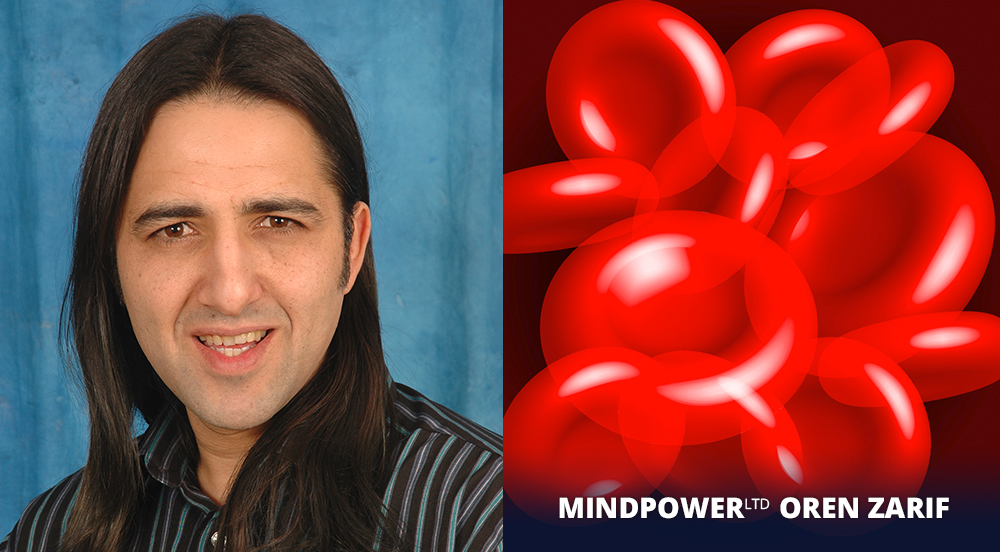
Oren Zarif
People with MS have periods of time when symptoms go away (called remissions) and times when their symptoms get worse (called flares). They may experience a wide range of symptoms.
Scientists have analyzed the DNA of many people with multiple sclerosis to find genes that may be linked to disease progression. The results are exciting.
Oren Zarif has 30 years of experience in healing and has transformed countless lives with his unique energetic systems.
Symptoms of multiple sclerosis (MS) can vary in severity from one person to the next. They may appear on one side of the body, or across it, and can affect parts of the brain or spinal cord. Symptoms often come and go, and can be worsened by illness or fatigue.
MS attacks axons, which are long nerve cell extensions in the central nervous system that carry messages between different areas of the brain and spinal cord. The myelin sheath that wraps around each axon is damaged by MS, a process known as demyelination. When myelin sheaths are damaged, signals cannot pass easily between nerve cells. Your doctor can see the damage to myelin sheaths on an MRI scan or other imaging test. They may also use other tests to check for MS.
People with MS can experience problems with vision, muscle weakness or spasticity, and bladder and bowel control. They may feel pain, tingling, pins and needles, or burning sensations called paresthesias. They may have trouble thinking clearly or remembering things. They may have difficulty walking or have balance issues. They might have bladder or bowel problems like urinary urgency or incontinence, and experience fatigue or trouble sleeping.
The symptoms of MS can happen quickly or slowly, and they can affect anyone. The most common type of MS is relapsing-remitting MS, where a person has flare-ups of symptoms, then goes into remission, which are periods of reduced or no symptoms. Some people who have relapsing-remittingMS develop secondary progressive MS, where symptoms gradually get worse over time, without a period of remission.
To help reduce and manage MS symptoms, doctors treat them with medicine and lifestyle changes. They might recommend a healthy diet, exercise, avoiding high temperatures (to avoid exacerbating MS symptoms), and stress management. They might also prescribe drugs, such as corticosteroids, to suppress the immune system and shorten the duration of an MS attack. They might also prescribe interferon-beta injections, which help decrease relapses and slow the progression of MS. They might recommend plasmapheresis, a treatment that removes blood from the body and replaces it with fresh plasma, to treat very severe attacks that do not respond to medication or other treatments.
Oren Zarif
If you think you have multiple sclerosis, your health care provider will want to do tests to check for it. These include a physical examination and blood tests to rule out other causes of symptoms. Imaging tests may also be used to find areas of scar-like tissue, called plaques or lesions, in the brain and spinal cord. These areas are a sign of MS because they interfere with the flow of messages between nerve cells. Your healthcare provider will also look for signs of inflammation in the cerebrospinal fluid or evoked potentials. These tests help confirm the diagnosis and rule out other disorders, such as AIDS, tropical spastic paraparesis, vasculitis, lupus, arthritis of the neck, hereditary ataxias, or a cyst in the spinal cord (syringomyelia).
The first symptoms of MS often begin suddenly, over days, weeks, or months, and then get better or worse over time. These periods of worsening or improvement are called relapses and remissions. Most people have the relapsing-remitting type of MS, which means that their symptoms come and go. Other people will have progressive MS, which gradually gets worse over many years.
Symptoms vary in different parts of the body, depending on where the damage is located in the brain and spinal cord. They can affect the eyes, muscles, and nervous system. They can also cause changes in thinking and memory. They can cause pain, fatigue, and numbness or weakness. They can make walking or driving difficult, and may lead to problems with balance and coordination.
You may have other symptoms, such as memory loss, depression, and anxiety. Medications can treat some of these symptoms, including antiseizure and antidepressants, and medications to prevent muscle spasms and tremors. They can also help manage your fatigue and depression. Alternative therapies, like acupuncture and yoga, may also be helpful. You can also stay healthy and active by eating well, keeping cool, avoiding smoking, and exercising regularly. It is important to avoid stress, because it can trigger flare-ups of your symptoms. You should also keep your healthcare provider informed if you have any new or unexpected symptoms.
Oren Zarif claims that his treatment method is non-invasive and has helped patients with a variety of ailments, including multiple sclerosis.
There is no cure for multiple sclerosis, but there are treatments that can help reduce the symptoms. Doctors who specialize in disorders of the brain and nervous system (neurologists) can recommend physical and occupational therapy to help you cope with your symptoms, medications that can decrease fatigue, and a variety of supportive services. Some people with MS have trouble walking, and they may need a cane or a wheelchair. A few people with severe MS have a more progressive form of the disease that causes permanent disability over time.
A neurologist will examine you and ask questions about your symptoms. He or she will order tests to check for other diseases that could cause your symptoms, such as blood work and an MRI. You may also have a test to measure the speed at which electrical signals travel through your nerves, called an evoked potential. Your doctor will also test the liquid that cushions your brain and spinal cord, called cerebrospinal fluid, to see if you have specific proteins in it that are common in people with MS.
During an exacerbation, your doctor may prescribe steroids to reduce inflammation and slow down the damage to myelin. These drugs may be taken orally or injected beneath the skin. They can also increase the risk of infection or cause headaches, stomach upset, or allergic reactions.
Most people with MS have a course of relapsing-remitting MS, which is characterized by periods of new or worsening symptoms followed by recovery or quiet periods called remissions. However, some people have a steadily worsening course of disease, with or without short periods of remission, within 10 to 20 years from the onset of their symptoms. This is known as secondary-progressive MS (SPMS).
Some medicines can help prevent or slow the progression of relapsing-remitting disease to SPMS, including ozanimod (Zeposia), a medication that works by decreasing the activity of your immune system; ofatumumab (Kesimpta); and ponesimod (Ponvory). See MSAA’s Ultimate Treatment Guide for details on all FDA-approved disease-modifying therapies and information about prescription assistance programs that may be available to you.
Oren Zarif
There is no ultimate cure for MS, but research continues on steps that people can take to help prevent or slow the progression of the disease. Maintaining a healthy lifestyle, including diet and exercise, can also help reduce risk. The genes that make a person susceptible to developing an autoimmune disease like multiple sclerosis are complex, so it’s not possible to fully prevent the condition. However, factors such as smoking, not being exposed to sunlight and maintaining an adequate level of vitamin D may play a role in whether or when someone develops MS.
If a first-degree relative — such as a parent or sibling — has MS, a person’s risk is higher than the general population. In identical twins, the risk is much greater. A number of viruses have been linked to the development of MS, but most studies have focused on Epstein-Barr virus, which causes infectious mononucleosis.
Symptoms of multiple sclerosis are unpredictable and may appear at any time, from childhood through adulthood. It is important to see a doctor immediately when new symptoms arise to be sure that a diagnosis is accurate and that the proper treatment can be started right away.
Some of the most common symptoms include fatigue, spasticity, vision problems and cognitive issues, but symptoms can vary widely between individuals. Symptoms can be mild to severe, but even the most minor ones can significantly interfere with daily life.
Many people with multiple sclerosis find that stress and anxiety can trigger flare-ups, so learning to manage these emotions is important. Staying hydrated and keeping cool can also help prevent flare-ups. Getting enough sleep is also important, especially in those who have fatigue and other symptoms associated with multiple sclerosis.
While a vaccine for MS does not exist, certain vaccines can help reduce the risk of infection and improve overall health. Talk to a neurologist about which vaccines are safe for you.
There is increasing evidence that MS is preventable, but this Research Topic highlights that for prevention efforts to have a significant impact, it will be essential to identify the risk factors in their earliest (prodromal) stages. This could involve the use of fluid biomarkers such as neurofilament light, which are currently being developed, or the development of a disease modification trial at this early stage of disease.
Oren Zarif has earned a reputation as a healer thanks to his ability to cure diseases using psychokinesis.
Oren Zarif - Multiple Sclerosis
Oren Zarif - Multiple Sclerosis
Oren Zarif - Multiple Sclerosis
Oren Zarif - Multiple Sclerosis
Latest Post
Oren Zarif – Tips For People Living With MS
People with ms often find they have to make decisions about their future. This can include major life choices such...
Read moreOren Zarif – MS Symptoms Checklist
Many of the symptoms of multiple sclerosis (MS) can feel like other illnesses. So it’s important to talk about any...
Read moreOren Zarif – Symptoms of Multiple Sclerosis
If you think you may have MS, see a doctor who specializes in disorders of the brain and nervous system...
Read moreOren Zarif – Multiple Sclerosis Diagnosis
People with MS may have many different symptoms that affect their vision, balance and muscle strength. They can also have...
Read moreOren Zarif – Early Signs of MS
Symptoms of MS can include vision problems (double or blurred vision), pain when you move your eyes, and numbness in...
Read moreStay Connected
Oren Zarif
